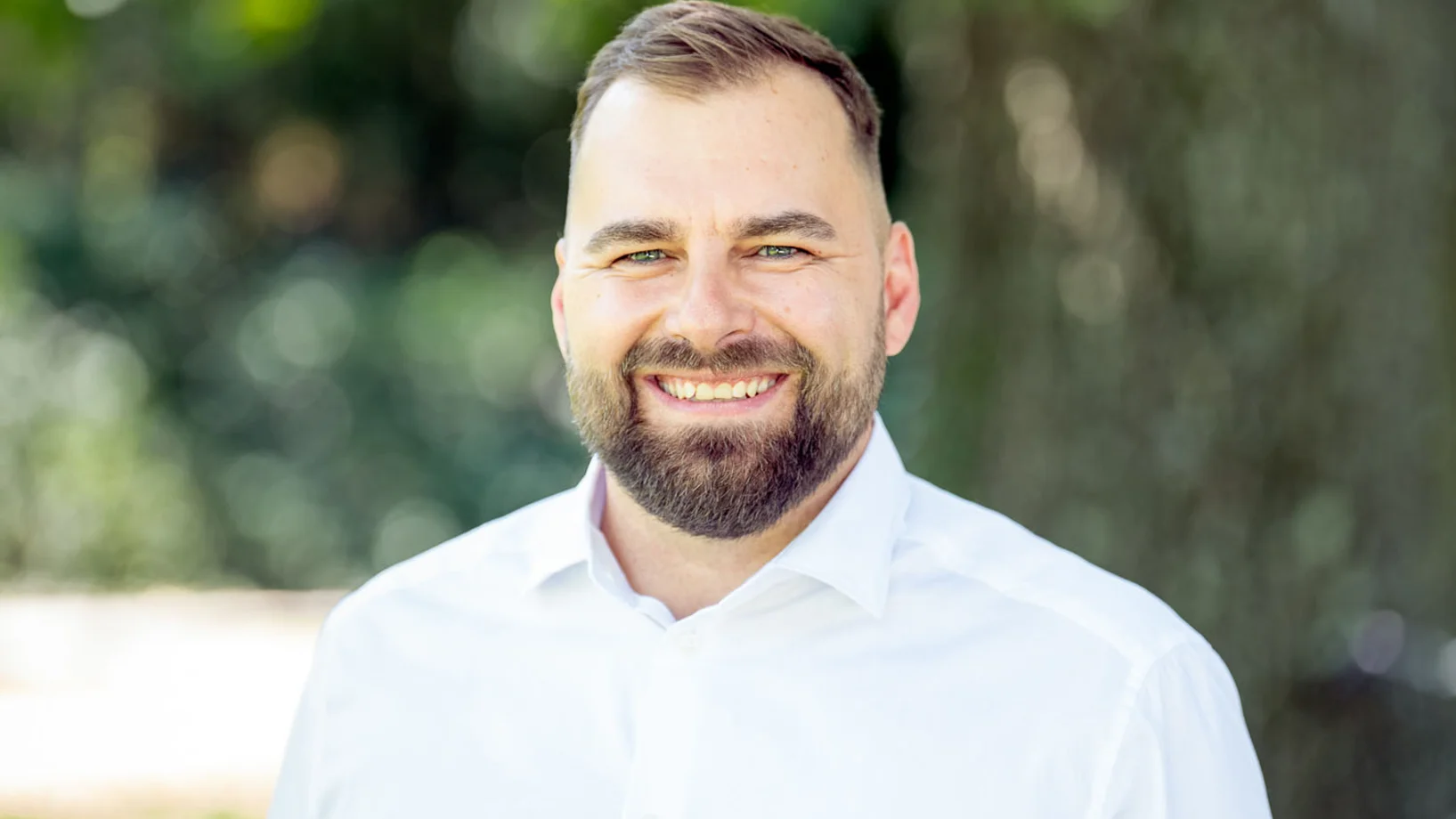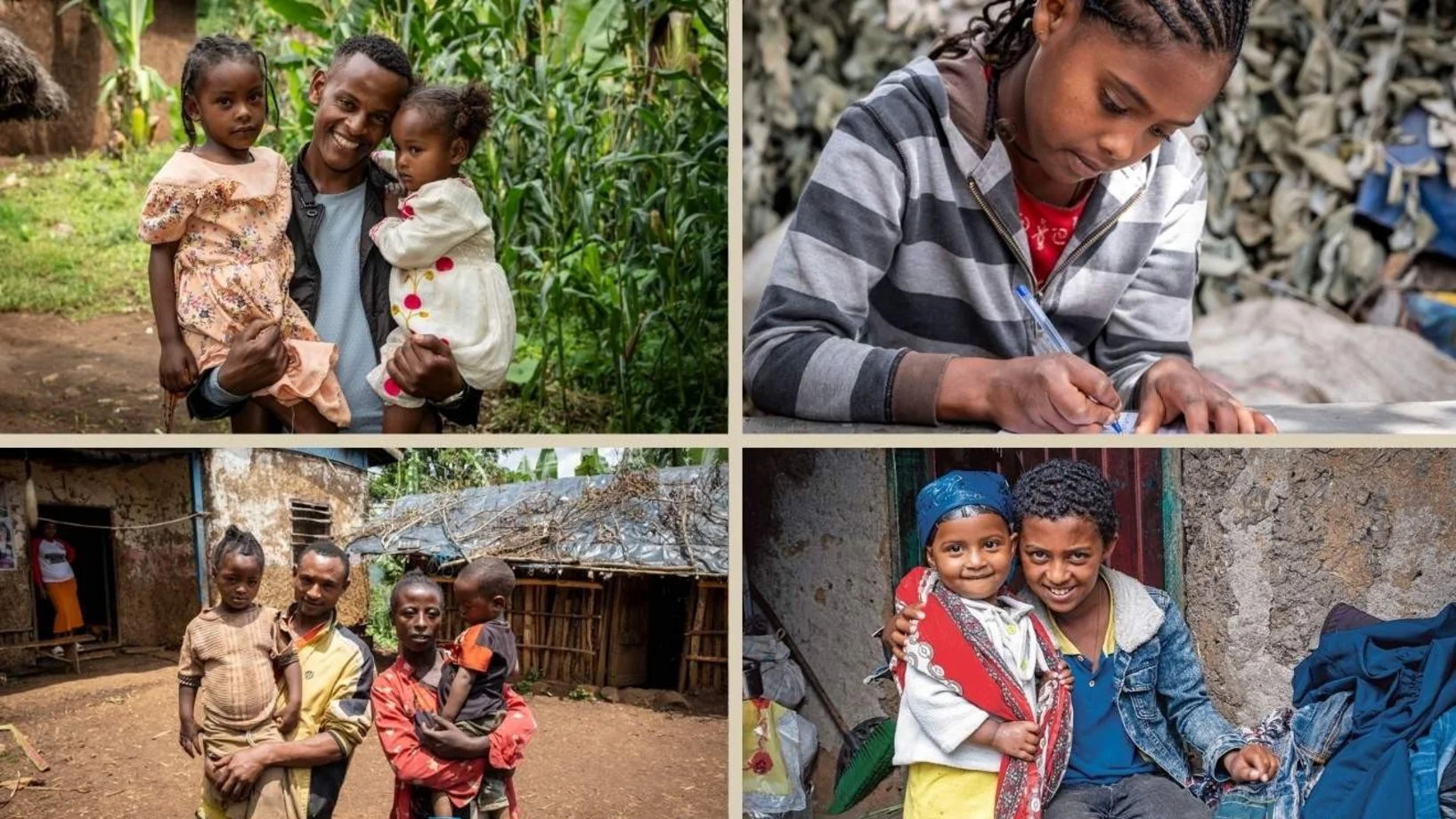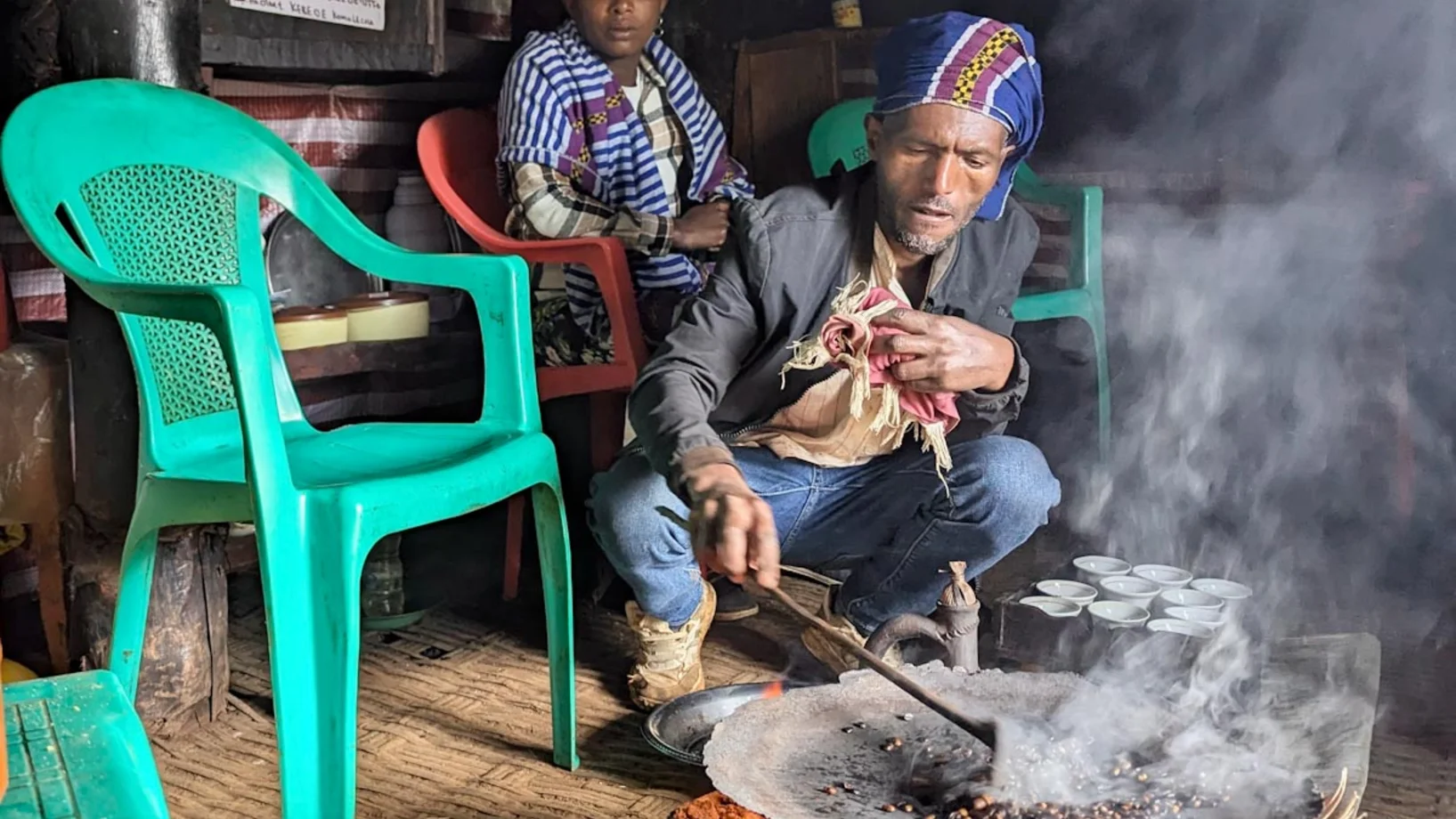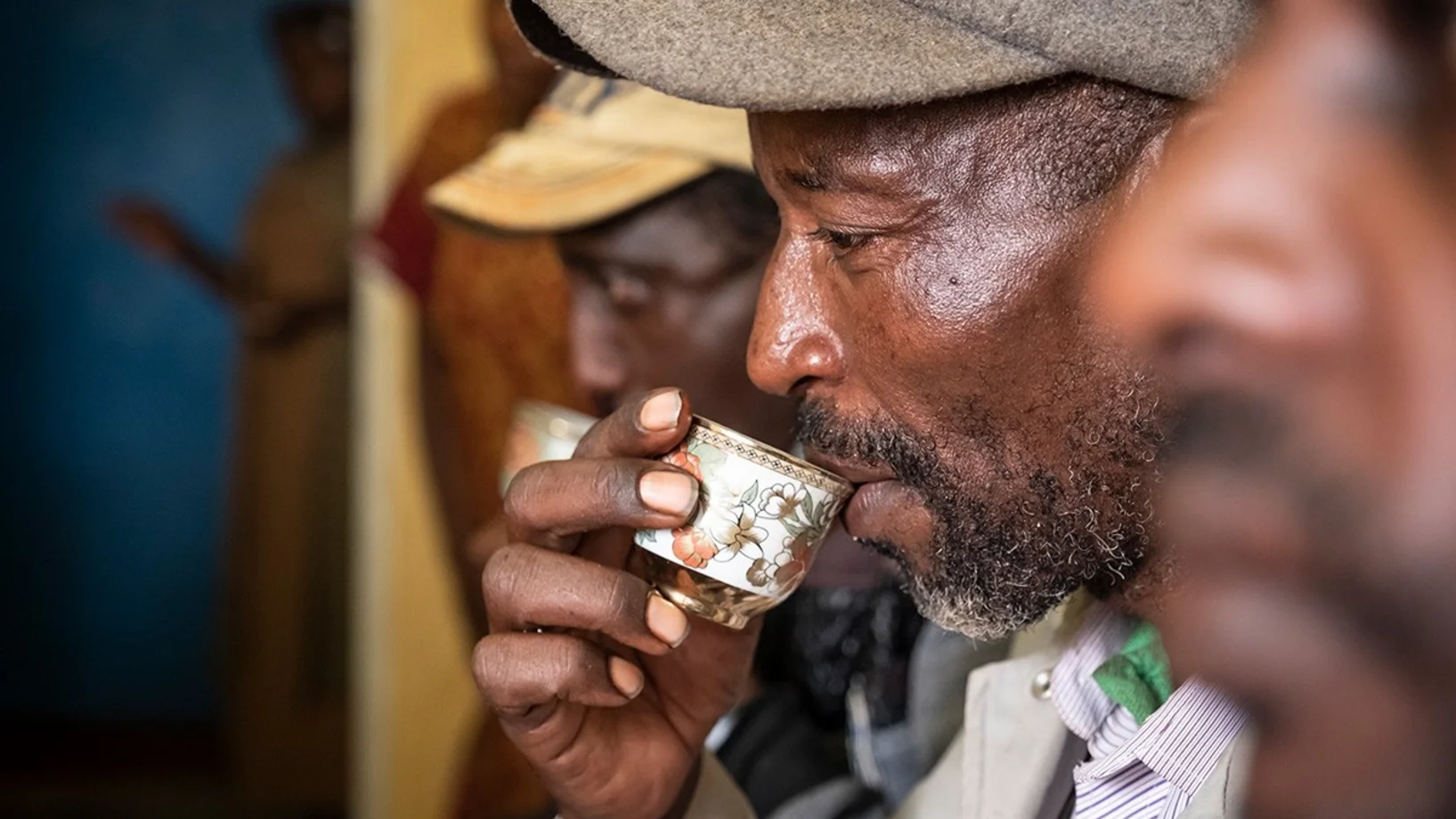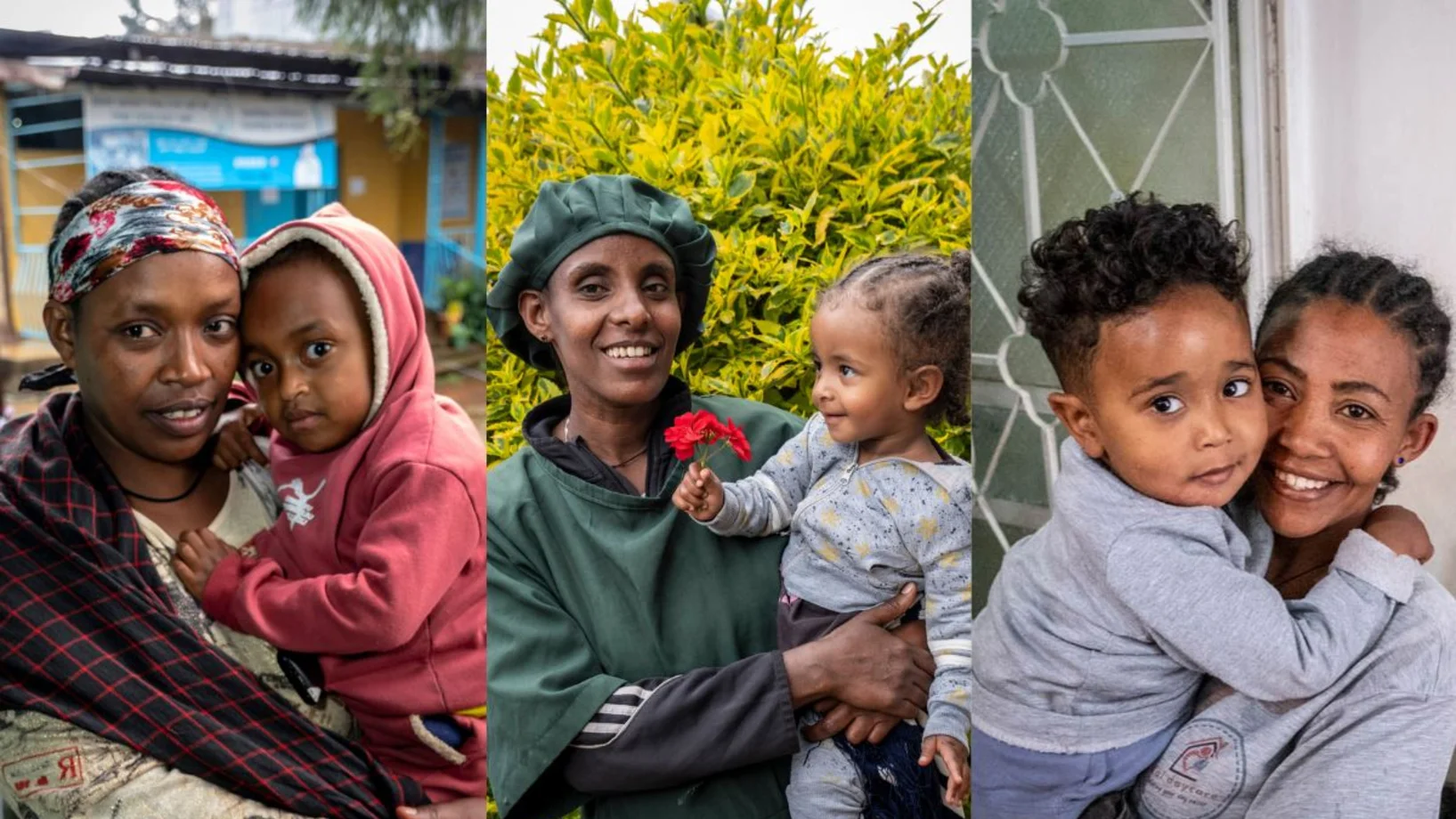How family planning can succeed
Zurich/Addis Ababa, May 6, 2025 - In many rural areas in Africa, women have an average of six children. For many families, this means exhaustion, hunger and a lack of prospects. But in the village of Bukisa in southern Ethiopia, it is clear that change is possible - if education, access to contraceptives and economic prospects work together.
26-year-old Abezu Tilahun goes from door to door in the village of Bukisa. As a volunteer peer educator, she advises women and couples on family planning - work that Menschen für Menschen initiated in the Abaya project area in southern Ethiopia. She doesn't always receive a friendly welcome: "Some people shout at me to mind your own business," she says. "But I go anyway. Again and again. "
Abezu Tilahun is convinced that it is crucial for the future of families to be able to decide how many children they have. According to her, more than a hundred households have started using contraception after her consultations. She herself is a mother of two children - and a pupil: during the week she attends the eleventh grade in the nearest town. "I want to show that you can still learn and develop after marriage," she says.
Church as multiplier
Pastor Terefe Woticha also speaks openly about family planning - at the lectern in his small church, which is made of plastic tarpaulins and eucalyptus poles. The 57-year-old is the father of eight children. "For me, the Bible comes too late," he says, quoting from the letter to the Ephesians: "Pay close attention to how you live - not as ignorant people, but as wise!"
He used to be able to feed his family by selling honey and maize. But with climate change, harvests are becoming more erratic. The income is no longer sufficient. "Children are a gift from God," he says, "but you also have to be able to provide for them." Menschen für Menschen has specifically trained religious dignitaries like him to bring the topic of family planning in line with faith into the communities, and his congregation is following suit.
"Before, we hardly knew anything about family planning," says community member Tsehaynish Samuel. "But now, sixty, maybe even eighty percent of women must be using contraception."
Menschen für Menschen has commissioned an independent evaluation. According to this, the proportion of married couples in the Abaya project area who have actively opted for contraception has risen by 21 percent in the last three years.
Training in savings groups
Another way to reach women is through cooperative savings groups. In addition to basic business knowledge, members also receive information on health, nutrition - and family planning.
Shewaye Lilo is 25 years old, a mother of two sons and a member of such a group in Bukisa. "In the cooperative, I not only learn how to save money, but also how to save for children," she says. "By that I mean: without the savings group, I would certainly have five children by now." Today, she runs a small drinks shop and trades in Kotcho, the local staple food. She financed her business idea with a microloan from the savings group, which was set up by Menschen für Menschen.
According to official statistics, 41% of Ethiopian women use modern contraceptive methods - a further 22% would like to use contraception but do not have access. The reasons range from social pressure to supply bottlenecks. In rural areas in particular, there is often a lack of contraceptives, especially in rural areas.
Government health centers do offer the three-month injection or the contraceptive pill - "but often only in theory," says Michael Kesselring, Co-Managing Director of Menschen für Menschen. "In practice, the drugs are often not available in remote facilities. That's why we are now specifically supplying the health stations with contraceptives - so that women don't become pregnant unintentionally simply because they don't have the materials."
In the new project area of Raphe, the district neighboring Abaya, Menschen für Menschen is focusing on agricultural support, economic independence - and education about family planning. Shibere Tamirat, a smallholder farmer in the region, describes the problem in clear terms: "Many families don't have enough to eat. That's why we have to curb the growth of the population. "
Maternal mortality in Ethiopia is high. One in 66 women dies in childbirth. Early marriages are widespread: Four out of ten young women marry before their 18th birthday, one in seven even at the age of 14. This can only change if girls go to school, women become more economically independent and access to contraception is guaranteed: "Providing people with the knowledge and opportunity for family planning is a prerequisite for development," says Michael Kesselring. "Every child that is born should be a wanted child."
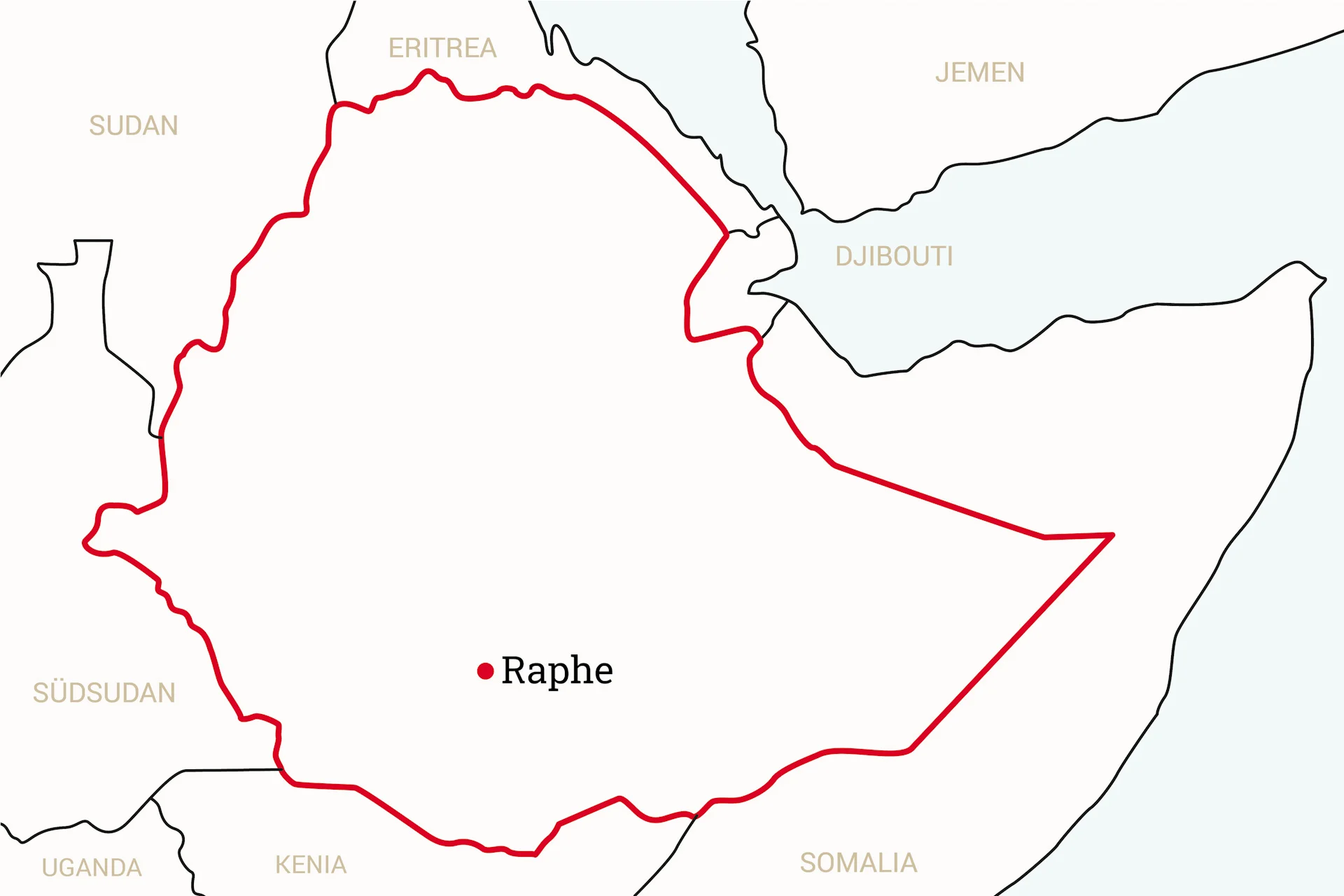
About the Menschen für Menschen Foundation
Menschen für Menschen is committed to fighting poverty and hunger. The foundation was established by the actor Karlheinz Böhm (1928 - 2014). In the spirit of its founder, the Swiss aid organization creates prospects for the poorest families in Ethiopia. The aim of the work is to enable them to live in dignity in their home country. The individual projects focus on promoting women, vocational training, microcredits, child aid, family planning and agricultural development. The components are combined according to local needs and implemented with carefully selected local partners.
Download the picture in HD quality and the media release (in German) as PDF here:

